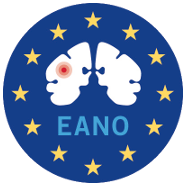-
Views
-
Cite
Cite
Josh Morganti, Sharon Liu, Susanna Rosi, Nalin Gupta, OT-09
CHARACTERIZATION OF INFILTRATING MYELOID CELLS ASSOCIATED WITH XENOGRAFTED GLIOMAS IN THE RODENT BRAIN, Neuro-Oncology, Volume 17, Issue suppl_3, June 2015, Page iii30, https://doi.org/10.1093/neuonc/nov061.122Close - Share Icon Share
Extract
INTRODUCTION: Ionizing radiation, usually delivered as fractionated external beam radiotherapy, is a cornerstone of treatment for many types of brain tumors in children. However, depending on the age of the child, radiation also causes a number of late effects including progressive cognitive dysfunction. Specifically, irradiation of key structures such as the hippocampus results in the activation of inflammatory pathways, and can profoundly affect the neural structures that mediate learning and memory. METHODS: GL261 mouse glioma cells syngenic with C57/Bl6 mice were implanted into the frontal lobe of 8-12 week old mice. Tumors and normal brain tissues were examined by histology, and flow cytometry. To separate resident microglia from macrophages derived from circulating monocytes in vivo, we utilized a transgenic reporter mouse (CCR2RFP/+CX3CR1GFP/+) to accurately delineate cells based on their expression of either CX3CR1+ or CCR2+. RESULTS: We have previously shown that ionizing radiation leads to macrophage infiltration, and that mice deficient for CCR2 also have a blunted effect on cognition. In tumor bearing animals, there is a robust infiltration of peripherally derived CD11b+/F4/80+ cells into the tumor. These cells primarily express CCR2. Relative to control animals, there is also an increase in this cell population in the ipsilateral hemisphere and contralateral hemisphere. Cognitive function in tumor-bearing CCR2 knockout animals will be assessed to determine if loss of CCR2 signaling attenuates the effect of brain irradiation. CONCLUSION: An inflammatory cell population is present in increased numbers in the uninvolved brain of tumor bearing animals. This cell population plays a role in radiation-induced cognitive change and targeting this population may provide a route to ameliorate the cognitive decline observed after ionizing radiation.






